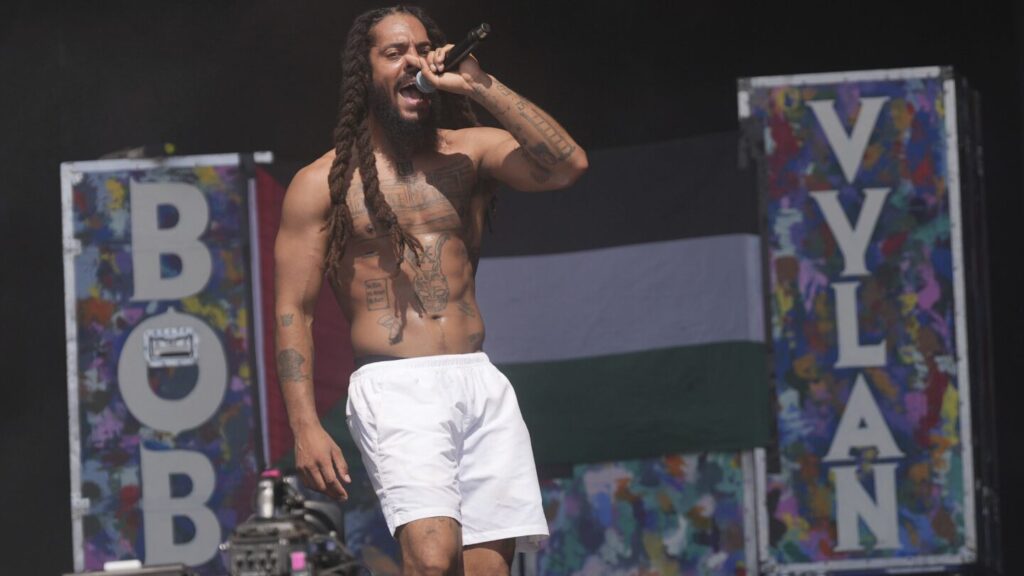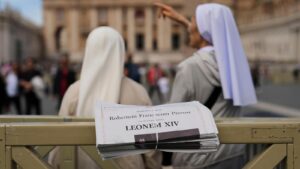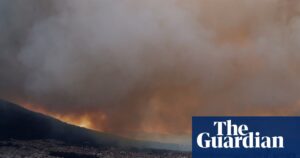
LONDON — The BBC has come under intense scrutiny following its decision to broadcast a controversial performance by rap duo Bob Vylan at the Glastonbury Festival. The performance, which took place on Saturday, featured chants calling for “death” to the Israeli military, prompting accusations of antisemitism.
The British broadcaster acknowledged on Monday that it should have pulled the livestream, describing the chants as “antisemitic.” British Prime Minister Keir Starmer condemned the incident, emphasizing that there is no justification for such “appalling hate speech.”
BBC’s Response and Political Reactions
In a statement, the BBC asserted its commitment to freedom of expression while firmly opposing incitement to violence. “The antisemitic sentiments expressed by Bob Vylan were utterly unacceptable and have no place on our airwaves,” the broadcaster stated.
Prime Minister Starmer demanded an explanation from the BBC regarding how the scenes were allowed to be broadcast. Meanwhile, Ofcom, the UK’s broadcasting regulator, expressed significant concern over the incident, stating that the BBC “clearly has questions to answer.”
Performance Details and Public Reaction
During their performance on the West Holts Stage, Bob Vylan led the crowd in chants of “free, free Palestine” and “death, death to the IDF,” referring to the Israel Defense Forces. The Israeli Embassy in the UK expressed its disturbance over what it termed “inflammatory and hateful rhetoric” at the festival.
Bob Vylan, known for their fusion of punk, grime, and other styles, often address issues such as racism and politics in their music. The duo, who maintain their anonymity for privacy reasons, have released four albums since their formation in 2017.
“Teaching our children to speak up for the change they want and need is the only way that we make this world a better place,” Bobby Vylan stated on social media, acknowledging the mixed reactions to their performance.
Wider Implications and Historical Context
The controversy at Glastonbury is part of a broader conversation about the conflict between Israel and Palestine, which has sparked global protests and debates. The ongoing conflict has seen significant casualties, with more than 6,000 people killed and over 20,000 injured in Gaza since the collapse of a ceasefire in March.
International criticism of Israel’s military actions in Gaza has been widespread. In May, the UK, France, and Canada issued a joint statement condemning what they described as Israel’s “egregious” actions in the region.
According to Gaza’s Health Ministry, since the war began in October 2023, Israeli attacks have resulted in over 56,000 deaths, with women and children comprising more than half of the fatalities.
Future Considerations and Regulatory Actions
The BBC’s handling of the Glastonbury incident raises questions about the responsibility of broadcasters in moderating content that may incite violence or hatred. As regulatory bodies like Ofcom review the situation, the incident underscores the challenges of balancing freedom of expression with the need to prevent the spread of harmful rhetoric.
Police have indicated they are reviewing video evidence from the festival to determine whether any legal offenses were committed during the performances. The situation continues to evolve, with potential implications for future broadcasting policies and festival regulations.
As the world watches the ongoing conflict and its repercussions, the Glastonbury incident serves as a reminder of the powerful role media and public figures play in shaping public discourse and the importance of responsible communication.





